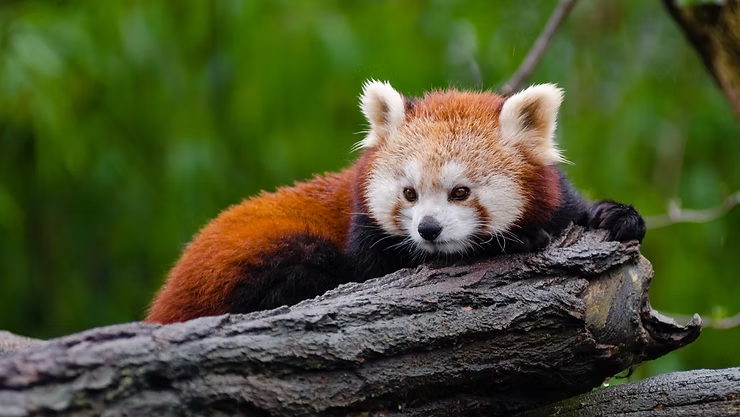10 of the World’s Most Endangered Animals
In our collective effort to safeguard Earth’s biodiversity, we highlight ten of the most endangered animals. Each of these species faces critical threats such as habitat loss, poaching, and human activity. Their survival depends on urgent global action and conservation initiatives.
The Majestic Amur Leopard
Habitat and Population
The Amur leopard is one of the rarest big cats, with only about 80 left in the wild. Found in eastern Russia and parts of China, they thrive in temperate forests but require vast territories to hunt and survive. Their shrinking habitat makes them especially vulnerable to extinction.
- Lives in Russia’s Far East and northeastern China
- Solitary animals needing large hunting grounds
- Population remains critically low despite conservation efforts
Threats to Survival
Deforestation, human encroachment, poaching, and climate change continue to endanger the species. Fragmented habitats make it difficult for leopards to breed and sustain healthy populations.
The Adorable Sumatran Orangutan
Unique Features
The Sumatran orangutan is known for its reddish-brown hair, long arms, and remarkable intelligence. They use tools and display advanced problem-solving skills, while mothers nurture their young for several years, teaching vital survival techniques.
Habitat Loss
Deforestation for agriculture, logging, and infrastructure development is the greatest threat to these primates. Protecting their rainforest homes is essential to ensuring their survival.
The Elusive Javan Rhino
Physical Characteristics
With a single horn and armor-like skin folds, the Javan rhino is one of the rarest large mammals. Fewer than 70 individuals remain, confined to a single park in Indonesia.
Conservation Initiatives
- Habitat restoration projects in Java
- Strict anti-poaching enforcement
- Community programs to promote eco-friendly practices
The Graceful Hawksbill Turtle
Distinctive Shell
Hawksbill turtles are easily recognized by their beautiful, overlapping shell scales. Sadly, this feature also makes them targets for the illegal wildlife trade. They migrate across oceans but face declining numbers due to bycatch and egg loss.
Threats from Human Activity
Pollution, coastal development, and poaching remain key dangers. Conservationists stress the importance of protecting nesting beaches and marine habitats.
The Enigmatic Saola
Rare and Mysterious
Nicknamed the “Asian unicorn,” the saola was only discovered in 1992. Native to the Annamite Range of Laos and Vietnam, fewer than 750 remain. Their long horns and white facial markings make them truly unique.
Conservation Challenges
Habitat fragmentation and poaching are their greatest threats. Conservation groups are working to preserve forest corridors and involve local communities in protection efforts.
The Endearing Vaquita
Smallest Porpoise Species
The vaquita, found only in Mexico’s northern Gulf of California, is the rarest marine mammal. With fewer than 20 individuals remaining, it faces imminent extinction.
Illegal Fishing
Most vaquitas die as bycatch in illegal gillnets. Conservation measures include stronger enforcement, alternative fishing methods, and community education.
The Majestic Sumatran Tiger
Iconic Big Cat
The Sumatran tiger, with its striking stripes, is the smallest surviving tiger subspecies. Habitat destruction and poaching for body parts continue to drive their decline.
Conservation Projects
- Reforestation and habitat protection programs
- Anti-poaching patrols and stricter enforcement
- Awareness campaigns to reduce demand for illegal trade
The Playful Philippine Tarsier
Tiny Primate
The Philippine tarsier is a tiny primate with huge eyes and a haunting call. Once common, it is now critically endangered due to deforestation and hunting.
Conservation Efforts
Protected sanctuaries, habitat restoration, and awareness programs aim to save this unique species from extinction.
In Conclusion
From the elusive saola to the endangered vaquita, these animals remind us of Earth’s fragile biodiversity. Protecting their habitats, supporting conservation organizations, and reducing human threats are critical to their survival. With collective action, we can help ensure these remarkable creatures continue to thrive.
Frequently Asked Questions
What is the rarest big cat?
The Amur leopard, with fewer than 80 individuals in the wild.
Why are Sumatran orangutans endangered?
Mainly due to deforestation and habitat loss for palm oil plantations.
How many Javan rhinos remain?
About 67 individuals, all in Ujung Kulon National Park, Indonesia.
What makes the hawksbill turtle unique?
Its shell with overlapping scales, often exploited in the illegal trade.
How many vaquitas are left?
Fewer than 20 remain, making it the most endangered marine mammal.

